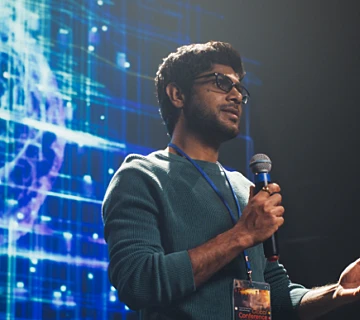Workplace leaders in tech and beyond have invested millions in cloud infrastructure, AI integration, and digital productivity tools, all in the name of digital transformation. But the real disruptor in the modern workplace might not actually be your next software rollout as much as it’s the people using it. Your team’s digital fluency — and how that transforms your work culture — is just as critical.
As the next wave of Gen Z graduates enter the workforce, we need to make room for a generation that sees digital fluency as a mindset and skill set influencing autonomy, collaboration, and purpose in every interaction and task. And they’re not a fringe group anymore. Gen Z now makes up 18% of the workforce — that's more than Baby Boomers for the first time. In fact, by 2030, it’s expected that Gen Z will account for 30% of all workers.
These employees aren’t just looking for remote work or the latest tools (although that’s certainly part of it). They expect a seamless, values-driven, and digitally fluent culture from day one.
It’s Not Just a Tech Shift — It's a Culture Shift
Too often, digital transformation in the workplace gets reduced to tools and timelines. What platforms are we using? Have we migrated to the cloud? How are we implementing AI? For the newest generation of workers, however, transformation isn’t just about what tech is being implemented; it’s the overall work culture.
Gen Z talent doesn’t separate tools from experience. This means companies need to evolve internal cultures just as deliberately as you evolve your tech stacks. These workers are more likely to consider how intuitive a process is, how accessible leadership feels, and whether there’s a transparent flow of communication — all indicators of whether digital fluency empowers the culture or legacy thinking is holding it back.
What This Generation Really Expects (and What That Means for You)
As this generation makes up more and more of today’s workforce, it’s time to consider whether your organization is prepared to nurture and grow that talent effectively. Let’s break down a few of the expectations Gen Z brings to work, and what that might mean for workplace leaders aiming to retain, empower, and grow this generation of professionals:
1. Autonomy and Flexibility are Non-Negotiable
This goes beyond hybrid schedules. Rigid systems and outdated collaboration models are bound to frustrate workers who are used to on-demand digital experiences in their personal lives. Gen Z expects control over when, how, and where they work because they have the digital fluency to do so.
That means these talents expect support on asynchronous workflows, transparent documentation, and minimal dependency on physical presence or a schedule that’s bogged down with “meetings that could have been an email.” They want to be trusted to manage their time, hit goals, and collaborate in ways that make sense for the task at hand, whether that’s deep focus or real-time teamwork. If your organization’s employee experience isn't supporting flexible work in a meaningful way, top talent won’t stick around.
2. Culture and Purpose That Feel Authentic
Values-driven leadership is no longer optional. Next-gen employees want to work for organizations that don’t just state their values — they live and lead by them. That means prioritizing equity, sustainability, and social impact in ways that go beyond what’s written on the company website. This generation pays attention to how teams communicate, how decisions are made, and whether those values show up in everyday work. If your company culture doesn’t match your messaging, they’ll notice.
3. Tech that “Just Works”
This is the first generation that was truly raised online. These digital natives expect the same frictionless experience at work that matches their personal lives. Clunky legacy systems and siloed data flags that the organization isn’t serious about innovation.
Why? A poor user experience with your digital tools creates barriers to productivity and engagement. More than outdated tools, such experience signals a cultural gap in embracing innovation and shared digital skills. Streamlined, modern platforms are essential for enabling high-performing teams and attracting digitally fluent talent.
4. Opportunities to Grow with Technology
The rise of AI and automation isn’t lost on next-gen employees. Many are eager to learn new tools and stay ahead of tech trends, especially if their organization supports continuous learning. Employers that embrace digital upskilling and democratize access to Generative AI foster a culture where talent can further develop their digital proficiency and future-proof their careers.
Digital Fluency is Mandatory, but Workplace Culture is the Competitive Edge
The next generation of talent isn’t choosing between purpose and performance. They want both. They expect modern tools and a modern culture to match. That doesn’t mean your workplace has to be perfect at every turn, but it does mean employees are paying attention. They’re looking at how you work, how you lead, how you grow, and whether your values show up beyond the mission statement.
Ultimately, the organizations that win the talent war aren’t just the ones adopting the latest tech; they're also the ones building cultures where digital fluency enables trust, clarity, and momentum. It’s this fusion of culture and access to advancement that keeps Gen Z engaged, empowered, and eager to grow within your company.




